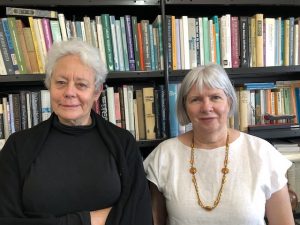The Forgotten Women
There is little public acknowledgement of the fact that a significant number of women will be diagnosed with metastatic breast cancer each year in Australia, either as a first diagnosis or a recurrence of breast cancer.
Our experience over the past twenty years has shown us that a diagnosis of metastatic breast cancer is akin to a traumatic event and is more devastating than a diagnosis of early breast cancer. Most women and their partners and families experience it as a shock. It takes some time to come to terms with the reality of living with metastatic breast cancer and a reduced life expectancy.
The emphasis is generally to paint a positive picture of breast cancer and to point to how many more women are surviving or living longer – but this leaves women with metastatic breast cancer to feel isolated, and over time, alienated from the ‘pink’ breast cancer community. They do not see themselves as ‘survivors’ in that same way and cannot put the cancer behind them and get on with their lives after completing their initial treatment.
The tendency to describe metastatic breast cancer as a ‘chronic’ illness rather than an incurable condition reflects this wish to put a positive spin on metastatic disease. The use of the term ‘chronic’ is at this time a misnomer which offers false hope to women who are diagnosed with metastatic disease. It does nothing to reassure them and leaves them to deal with the reality on their own. As we understand it, it is estimated that only 40% of Australian women diagnosed with metastatic breast cancer will still be alive five years later, figures which do not support the notion of metastatic breast cancer as a chronic disease. It is a progressive, incurable disease.
We do a disservice to these women when we do not acknowledge the reality of their situation. Instead we should be offering support and assurance that there are treatments available to slow the spread of the disease, and providing appropriate psychosocial support services to support them and their partners and families throughout the course of the disease.

There is currently increased impetus in Australia to focus on the needs of women with metastatic breast cancer, to identify gaps in services and access to treatment and support, and to start to address these. Along with other key organisations around Australia the ABCG is involved in developing an Action Plan to improve the lives and outcomes of women living with metastatic breast cancer. Our contribution is in the area of improving access to specialist psychosocial support services and increasing awareness around metastatic breast cancer.
We have made strong recommendations for the need for support services, in particular professionally led groups, which specifically target the needs of women with metastatic breast cancer and take into account the progressive nature of the disease. We are part of the change that is happening, and part of our contribution is to help women and their families to feel less isolated and adjust to their ‘new normal’.
Browse our site to read about our group, and our thoughts on the value of support groups.
If you wish to support our service you can do so in a several ways:
-
make a donation to help us extend our service – donate here
-
tell others about our service and refer women, partners and families affected by metastatic breast cancer
-
find out more about metastatic breast cancer and help us increase awareness and understanding about the impact of metastatic breast cancer.
Housework
Freeze a big cookup and keep in the freezer for when you have chemotherapy, and are not feeling well. Ignore housecleaning – spend your days doing stuff you enjoy. If the housecleaning is too much employ domestic help, or ask family or friends to assist.

